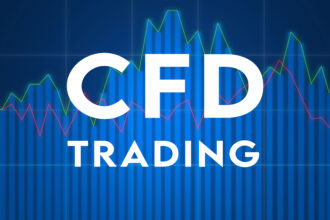Navigating the Forex Market: Brokers, Regulation, and Exchange Rates
- 1 The Forex Brokers: Your Trusted Partners
- 1.1 Regulation and Security
- 1.2 Trading Platforms and Tools
- 1.3 Spreads and Commissions
- 1.4 Customer Support
- 1.5 Educational Resources
- 2 Forex Regulation: Safeguarding Your Interests
- 2.1 Preventing Fraud and Misconduct
- 2.2 Financial Stability
- 2.3 Fair Trading Practices
- 2.4 Market Surveillance
- 3 The Complex World of Exchange Rates
- 4 Conclusion
In the fast-paced world of forex trading, success often hinges on two critical factors: choosing the right forex broker and understanding the complex dynamics of exchange rates. Additionally, navigating the regulatory landscape is crucial to ensure a safe and secure trading environment. In this comprehensive article, we will delve into these pivotal aspects of forex trading, shedding light on the role of forex brokers, the importance of regulation, and the intricacies of exchange rates.
The Forex Brokers: Your Trusted Partners

Forex brokers are the intermediaries that connect retail traders like you to the vast global currency exchange market. They offer a platform for executing trades and provide access to various currency pairs, allowing traders to buy and sell currencies.
Selecting the right forex broker is a crucial decision that can significantly impact your trading experience. Here are some key factors to consider:
Regulation and Security
Before entrusting your funds to a forex broker, it’s imperative to ensure they are properly regulated by a reputable authority. Regulatory bodies, such as the Commodity Futures Trading Commission (CFTC) in the United States or the Financial Conduct Authority (FCA) in the United Kingdom, impose strict standards on brokers to safeguard traders’ interests. Regulation ensures that the broker operates transparently and segregates client funds from its own.
Trading Platforms and Tools
A reliable forex broker should offer user-friendly trading platforms equipped with essential tools for analysis and execution. MetaTrader 4 (MT4) and MetaTrader 5 (MT5) are popular platforms known for their robust features, including advanced charting, technical indicators, and automated trading capabilities. Ensure the broker’s platform aligns with your trading preferences.
Spreads and Commissions
Spreads are the difference between the buying (ask) and selling (bid) prices of currency pairs. Brokers often make money through spreads or by charging a commission per trade. Low spreads can be advantageous for traders as they reduce the cost of entering and exiting positions. However, be cautious of brokers offering excessively tight spreads, as they may compensate through hidden fees or subpar services.
Customer Support
Prompt and efficient customer support is invaluable in the world of forex trading, where markets operate 24/5. Reliable brokers offer various channels for customer assistance, including phone, email, and live chat. Responsive support ensures you can address issues swiftly and effectively.
Educational Resources
For traders of all levels, access to educational materials is essential. Look for brokers that provide educational content such as webinars, tutorials, and market analysis. These resources can help you enhance your trading skills and stay informed about market developments.
Forex Regulation: Safeguarding Your Interests
Forex trading is a global phenomenon, and the absence of a centralized exchange means that regulatory oversight is crucial to maintain market integrity and protect traders. Regulation in the forex market serves several critical purposes:
Preventing Fraud and Misconduct
Regulatory bodies actively monitor and investigate fraudulent activities and unethical behavior within the industry. They take action against brokers or individuals engaged in fraudulent schemes, ensuring the safety of traders’ investments.
Financial Stability
Regulation enforces strict financial requirements on brokers, mandating the segregation of client funds from the broker’s operational capital. This prevents brokers from misusing traders’ funds and ensures that traders can access their money even if the broker faces financial difficulties.
Fair Trading Practices
Regulatory bodies establish rules to promote fair and transparent trading practices. This includes guidelines on pricing, order execution, and conflict of interest management. Such regulations help maintain a level playing field for all traders.
Market Surveillance
Regulators actively monitor market activities to detect and deter manipulation and market abuse. This oversight contributes to market stability and investor confidence.
The Complex World of Exchange Rates
Exchange rates are at the heart of forex trading. They determine the relative value of one currency against another and play a central role in trading decisions.
Factors Influencing Exchange Rates
Exchange rates are influenced by a multitude of factors, including:
Interest Rates: Higher interest rates in a country can attract foreign capital, leading to a stronger currency.
Economic Data: Economic indicators such as GDP growth, employment figures, and inflation rates can impact a country’s currency value.
Political Stability: Countries with stable governments and low levels of corruption tend to have stronger currencies.
Market Sentiment: Trader sentiment, influenced by news and events, can cause short-term fluctuations in exchange rates.
Central Bank Interventions: Central banks may intervene in the forex market to stabilize or influence their currency’s value.
Currency Risk Management
Exchange rate fluctuations can pose risks to businesses and investors. To mitigate these risks, various hedging strategies are employed. For instance, companies engaged in international trade may use forward contracts to lock in exchange rates for future transactions.
Conclusion
Forex trading is a dynamic and rewarding endeavor, but it comes with its share of complexities and risks. Choosing the right forex broker is your first step towards a successful trading journey, followed closely by understanding the significance of regulation in safeguarding your interests. Exchange rates, at the core of forex trading, require a deep understanding of the factors that influence them.
In the ever-evolving world of forex, staying informed and making informed decisions are key to achieving your trading goals. Remember that while brokers and regulation provide essential structures, it’s your knowledge, strategy, and discipline that ultimately determine your success in the thrilling world of forex trading. With the right tools, mindset, and continuous learning, you can navigate the forex market with confidence and aim for success in this dynamic financial arena.

















